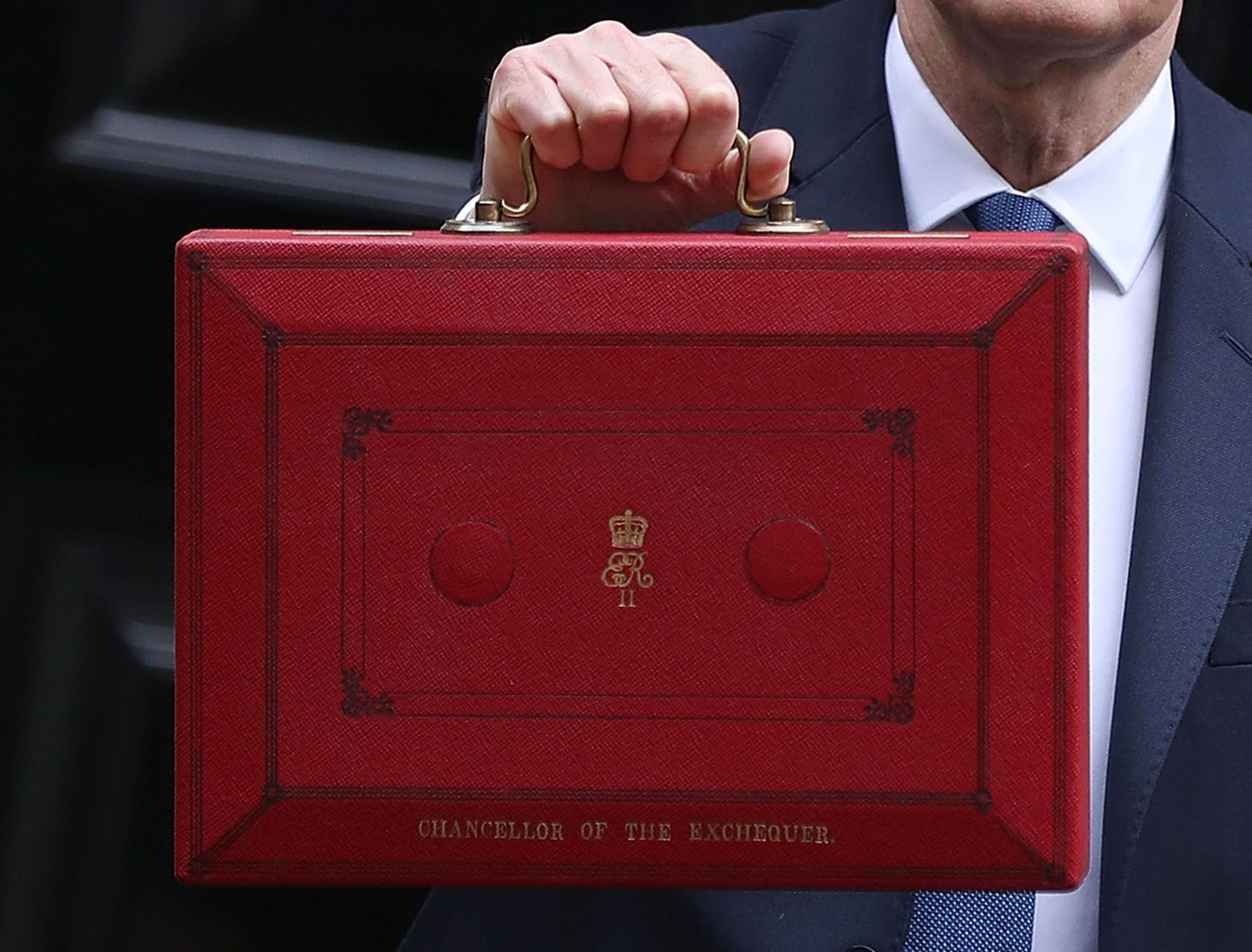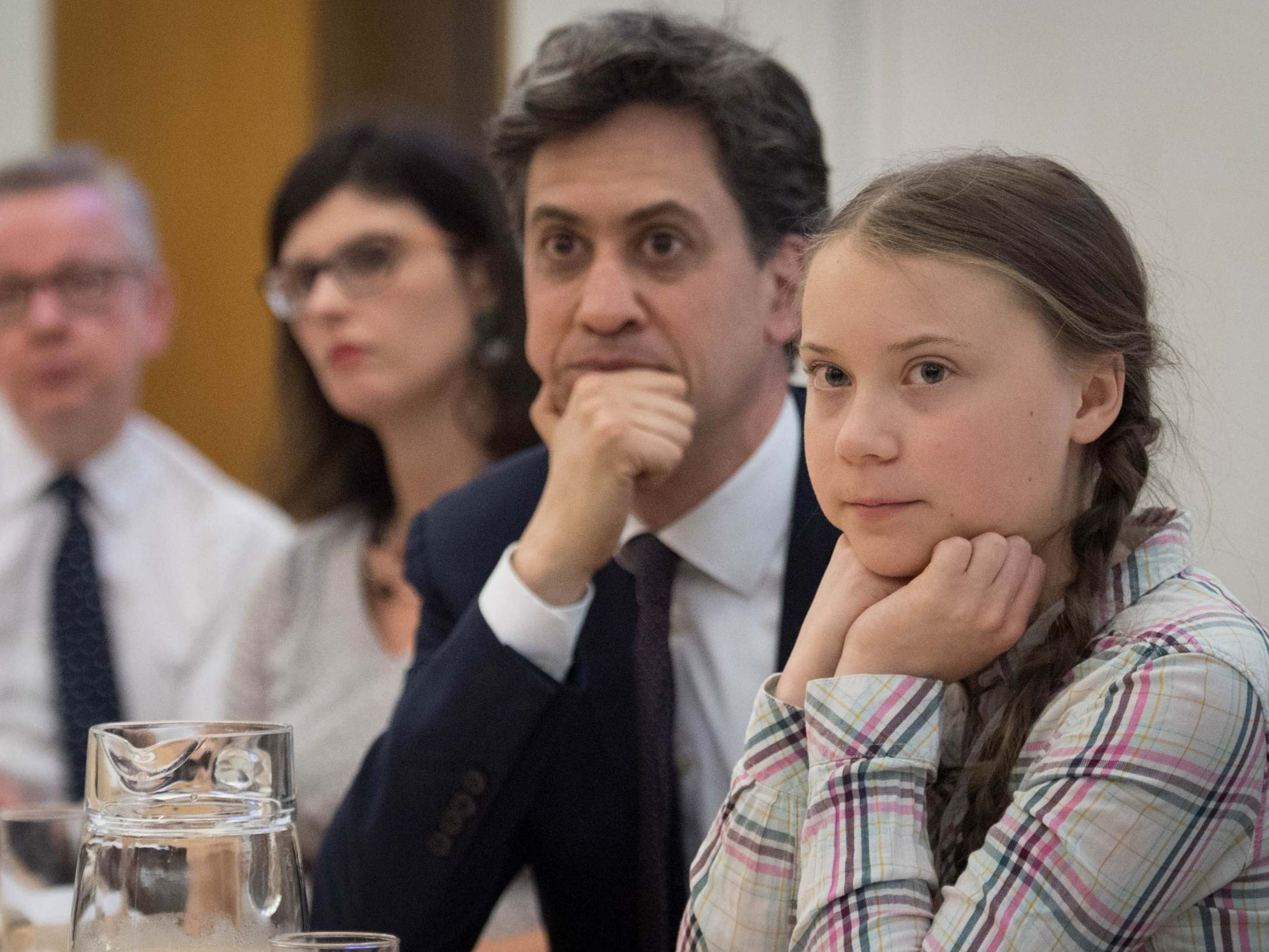Budget: Rishi Sunak urged to commit extra £33bn to climate change fight
Chancellor urged to deliver a ‘budget for climate and nature’ ahead of the UK hosting United Nations global warming summit

Chancellor Rishi Sunak has been challenged to deliver “the first Budget for climate and nature” by committing to spend an additional £33bn a year on actions needed to meet the government’s target of net-zero carbon by 2050.
Wednesday’s statement is expected to include significant investment in infrastructure projects around the country, including £5bn for next-generation gigabit-capable broadband.
But announcements on funding the government’s climate plans are expected to be largely deferred until the summer’s spending review, sparking fears among environmentalists that they will be too late to influence the crucial United Nations COP26 summit in Glasgow this November.
A new report by the IPPR thinktank’s Environmental Justice Commission found government needs to boost spending on climate and the environment from £17bn to £50bn annually to hit its target, including £12bn for low-carbon transport and £10bn for low-carbon buildings.
The commission’s co-chairs Ed Miliband and Caroline Lucas said the Budget will be a “litmus test” of how seriously Boris Johnson’s administration is taking its promises to help avert global warming.
Mr Sunak has fuelled expectations of a spending splurge in the 11 March Budget by refusing to rule out ditching fiscal constraints inherited from former chancellor Sajid Javid.
As chancellor, Mr Javid committed the government to balancing current spending over a three-year period, effectively putting a strict cap on expenditure on the day-to-day operations of the state.
Challenged repeatedly on BBC1’s Andrew Marr Show, Mr Sunak declined to confirm that he would retain his predecessor’s rules, saying only: “You’re asking me about the detail of what the Budget contains, which I can’t give you until Wednesday.”
The chancellor insisted that his policies would be guided by the principle of “fiscal responsibility”.
But his reluctance to sign up to a promise made just three months ago in the Conservative manifesto for the December election will spark speculation that he is preparing to give himself more leeway to turn on the spending taps at a time when the prime minister is pursuing ambitious plans for investment and the country is facing a potentially expensive coronavirus outbreak.
Among spending announcements expected in the first Budget since October 2018 are:
- £5bn for the roll-out of next-generation broadband in the hardest-to-reach 20 per cent of the UK, giving more than 5 million homes and businesses access to connections up to 40 times faster than standard superfast links;
- A £1bn deal with the mobile phone industry to boost 4G coverage to 280,000 premises and 16,000km of roads, with the biggest improvements in Scotland, Northern Ireland and Wales;
- A £643m package to help end rough sleeping, including £237m for new accommodation announced by the PM last month, £144m for support services and £262m for substance misuse recovery services;
- Doubling to £5.2bn funding for new flood defences;
- A promise to give the NHS “whatever it needs” in financial support to deal with coronavirus;
- The abolition of the so-called Tampon Tax.

Mr Sunak – who will deliver his first Budget just 27 days after being appointed chancellor following Mr Javid’s shock resignation – said: “We are committed to levelling up across every region and nation in the UK, and that is why we are making the largest ever public investment into broadband.
“This investment delivers on our promises to the British people, boosting growth and prosperity across the country.”
But the Environmental Justice Commission report argued that the Budget must significantly increase spending on climate change in order for the UK to show “true leadership” as hosts of the COP26 summit.
It said that commitments included in the Conservative manifesto for this fiscal year would not be enough even to meet the government’s previous target of cutting greenhouse gas emissions by 80 per cent by 2050.
To hit net zero, the UK will need to be running on renewable energy; industry will need to be using mostly carbon-free processes; all homes and other buildings will have to be fully insulated; and public transport will need to be fast and abundant, the report said.
And it warned that the government’s fiscal rule limiting public investment to 3 per cent of GDP will have to be relaxed to hit the 2050 target, with total investment needed to deliver net-zero as well as the government’s other plans closer to the long-term average of G7 countries of 3.5 per cent.
Former Labour leader Mr Miliband said: “This is the government’s opportunity, in the year of the COP, to show true global leadership on the climate crisis.
“We need a significantly tougher UK target for 2030 put in place this year to encourage other countries to follow and a Budget that puts tackling the climate emergency at its heart.
“This will take investment but making these decisions will create hundreds of thousands of jobs, improve our natural environment, cut air pollution and make Britain a better place to live.
“It makes economic and environmental sense. The time to act is now.”
And former Green Party leader Ms Lucas added: “This Budget will be a litmus test of whether the government understands the climate crisis. And on the basis of the evidence, they are falling terrifyingly short of what is needed.
“With likely shocks to the economy because of the coronavirus outbreak, and the accelerating climate emergency, investing in a Green New Deal is now more important than ever.
“When the chancellor rises to his feet on Wednesday, he should announce investment on a scale that meets the multiple challenges we face”.

Meanwhile, Labour’s shadow chancellor, John McDonnell, said that the Budget should address not only the climate emergency and coronavirus crisis, but also the social damage left from a decade of austerity.
“This should be one of the most significant Budgets in our peacetime history, because we are facing three of the most serious crises that our country has ever faced at once,” said Mr McDonnell ahead of a pre-Budget speech on Monday.
“Immediately, we face the crisis of coronavirus as it impacts upon our country, with potentially immensely dangerous – and already for some with tragic – consequences.
“After 10 years of harsh and unnecessary austerity we also face a social emergency, with extremes of poverty and inequality and crises in every one of our core public services.
“And, of course, we are confronted by the overall existential threat of climate change and the growing, deeply troubling realisation that we are rapidly running out of time to avert a climate crisis.”
Polling for The Independent suggested voters are ready to see a hike in spending on climate change, with 51 per cent saying they are prepared to pay more tax to deal with the problem, against just 20 per cent who were not.
However, the BMG survey indicated that voters are not ready for the chancellor to relax the fiscal discipline which has brought the deficit down from its historic peak in the aftermath of the 2008 financial crisis.
Asked what approach Mr Sunak should take to borrowing, 31 per cent said he should prioritise paying off the national debt against just 20 per cent who backed more borrowing to fund public services and investment. Some 26 per cent of those questioned said borrowing and investment should remain at existing levels.
Conservative voters were strongly opposed to more borrowing, favoured by just 14 per cent of those who backed Mr Johnson’s party in December, against 32 per cent who said the chancellor should prioritise debt reduction.
BMG questioned 1,498 British adults between 3 and 6 March.
Join our commenting forum
Join thought-provoking conversations, follow other Independent readers and see their replies
Comments
Bookmark popover
Removed from bookmarks